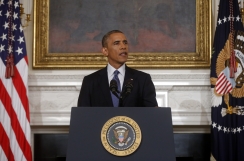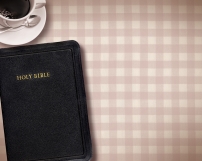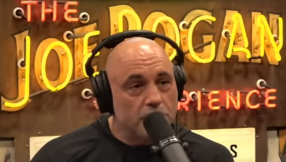Most Americans believe in heaven and hell but are fuzzy on other Christian doctrines, according to new findings from LifeWay Research – and even among churchgoers there's no real consensus.

The online survey of 3,000 Americans commissioned by Orlando-based Ligonier Ministries found that two-thirds of Americans believe heaven is a real place. That includes nine in 10 black Protestants (88 per cent) and evangelicals (90 per cent), three-quarters of Catholics (75 per cent) and even a third of non-Christians (37 per cent).
Just under half say there are many ways to heaven, with Catholics (67 percent) and Mainline Protestants (55 percent) most likely to agree. Evangelicals (19 percent) and Black Protestants (33 per cent) are more sceptical.
Americans are also believers in hell, with six in 10 saying it is real. Black Protestants (86 per cent) and Evangelicals (87 per cent) are most likely to say hell is a real place. Catholics (66 per cent) and Mainline Protestants (55 per cent) are less convinced.
Stephen Nichols, chief academic officer of Ligonier Ministries, said the study was intended to "take the temperature of America's theological health".
The researchers asked 43 questions about faith, covering topics from sin and salvation to the Bible and the afterlife. They wanted to know how people understand theology.
Among other findings were that more than half said their pastor's sermons had no authority in their lives; that half said worshipping alone or with family was as good as going to church; that more than half of evangelicals (59 per cent) say the Holy Spirit is a force rather than a personal being and that only 48 per cent of Americans said sex outside marriage was a sin.
Of Christian groups, mainline Protestants (44 per cent) and Catholics (40 per cent) don't see sex outside marriage as sinful. Three-quarters of black Protestants and evangelicals believe it is.
Nichols said the survey's overall results show churches have a lot of work to do: "This study demonstrates the stunning gap in theological awareness throughout our nation, in our neighbourhoods, and even in the seat next to us at church."
Ligonier founder and chairman R C Sproul said: "What comes screaming through this survey is the pervasive influence of humanism."
Ed Stetzer, executive director of LifeWay Research, said: "People like to believe in a generic Christian-ish god with cafeteria doctrines. However, when we asked about harder beliefs – things that the church has [considered] and still considers orthodoxy – the numbers shift."
















